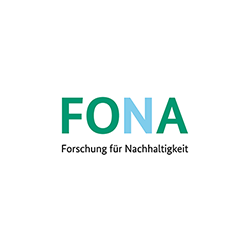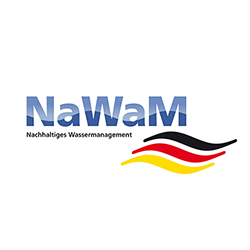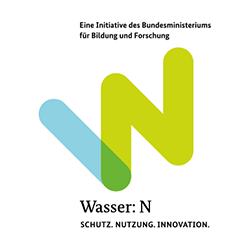Integrative application of innovations and digital cooling capacity management to reduce the amount of water required in steel production
Background:
Water is predominantly required for cooling in industry. In the steel industry, the share is 75%. Due to climate change, it must be assumed that water availability will be at least temporarily limited in the future. In order to nevertheless achieve a high level of operational reliability for steel production, the fresh water requirement must be decoupled as far as possible from production and minimized by recovering water from wastewater streams at the site.
For this purpose, the pilot plant available from WEISS (https://www.bmbf-wave.de/1441.php) (capacity: 1 m³/h) will be set up at the Eisenhüttenstadt site and wastewater not previously considered will be desalinated in order to maximize the potential for replacing evaporation losses in the open cooling circuit with internal water flows. First, the wastewater treatment process will be tested. For this purpose, additional required pretreatment steps will be determined after careful analysis of the water composition and their effectiveness will be tested in the laboratory. The tested pretreatment will then be implemented, integrated into the pilot plant and the wastewater desalinated.
An economically decisive aspect for the application is the safe and cost-effective disposal of the concentrates produced during desalination. Therefore, the salt fractions are separated in two different approaches.
An optimization and forecasting tool is to determine the development of the composition as well as the availability of the fresh water in order to be able to identify bottlenecks at an early stage. A digital cooling capacity management system integrated into the process is intended to make optimum use of the potential of existing cooling circuit systems by linking the production-related heat load with the current weather-related cooling capacity.
Finally, the concepts are to be evaluated economically and ecologically in order to select the most economically favorable and ecologically compatible solutions.
Aims:
To increase water availability, desalination processes will ensure that steel production is decoupled from water availability.
Innovative technologies such as membrane-based capacitive deionization (mCDI) and the development of antifouling-coated membranes for reverse osmosis are being used with the aim of increasing efficiency and improving selectivity.
Minimization of water demand and prediction of water shortages will be achieved by using digitization tools so and linking production with water supply.
The results already achieved in WEISS are to be transferred to other sites, validated and the application of the technology extended. The results from HighCon on concentrate treatment that is both economical and environmentally friendly will also be included. In addition, work is being carried out on the separation of monovalent salt components and the salt fractions are to be separated from each other as far as possible by means of fractional precipitation according to solubility product.
The establishment of a reference project with a capacity of about 50 m³/h is to prove the technological feasibility of the results achieved in WEISS in a demonstration application.



